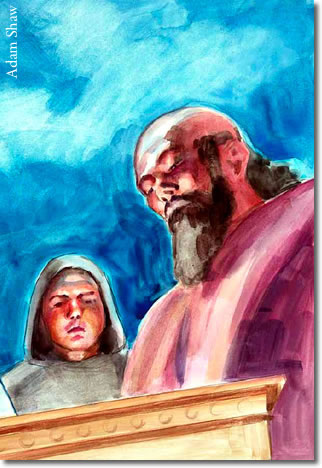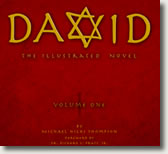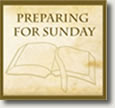The Glory and Mystery of God
 Then the people of Beth-shemesh said, “Who is able to stand before the Lord this holy God?”—1 Samuel 6:20
Then the people of Beth-shemesh said, “Who is able to stand before the Lord this holy God?”—1 Samuel 6:20
Sometimes we forget who is God. We think that we, with all our self-sufficiency and capability, can manage all things according to our liking. We're convinced that, as God's people, we can stand up front and proclaim God's will, knowing our words have heavenly endorsement. We're not the first to think so. Thousands of years ago, the ancient Israelites stumbled against this same obstacle. God most assuredly loved them, and they had the physical evidence to prove it: an ark—the most sacred of all objects—containing the tablets of Moses and the residing place of God's glory. Yet at some point, the people of Israel began to confuse God's ark with God's self, misconstruing its possession as a way to direct God's power.
The Old Testament book of 1 Samuel chapters 4, 5 and 6 has the worried Israelites bringing the ark onto the battlefield to ensure God’s presence and guarantee victory over their Philistine enemies. Unfortunately for them, the ark is not a lucky charm; God cannot be manipulated. The Philistines not only defeat the army of Israel, they capture the ark and take it with them. But the Philistines, who interpret their military conquest as also indicating conquest over Yahweh, are soon chastened by God’s enduring power. The tumors and mice that plague their cities quickly show them that the God of Israel has the final word.
Panicked by the destruction, the Philistines finally place the ark in a cart, add golden offerings to appease Yahweh’s wrath and send the ark to Beth-shemesh, where the Israelites receive it with rejoicing. Different explanations exist as to why 70 Israelites die amid the worship and thanksgiving that take place upon the ark's return. Though some receive it with true reverence, others are callous to the notion of honoring God. Their hubris costs them dearly.
We have here a graphic depiction of what happens when we fail to honor the mystery and sovereignty of God. “This story reminds us that there is a side of the reality of God that cannot be reduced to a tool for providing positive life experiences,” writes Bruce Birch in The New Interpreter’s Bible, Vol.2. “Relationship to God can be demanding and even risky. Manipulation and management of holy symbols for our own ends can be downright dangerous.”
True faith uses holy language and symbols as a means to come closer to God, not to bring God in line with our concepts and aims. When he asked for God's name, Moses heard this from God: "I AM who I AM." (Exodus 3:14). What these words say to us is that efforts to define, manipulate or use God move us away from faith and toward idolatry. “Lives of faith lived in respect for God’s freedom are lives of discernment,"writes Birch. "We seek to discern what God is doing in the world and align our efforts to God’s. … We must scan the horizon, seeking to discern God at work in people, movements, events and programs that make for wholeness, justice and love. To our surprise, we may sometimes find testimony to God at work in the mouths of those we thought were Philistines.”
When do we, like the stricken Israelites, stand in the face of God’s holiness? When do we act in ways that show that our own purposes come before our reverence for God’s power, mystery and freedom to act as God chooses? When do we abandon our quest to seek God and instead seek our own self-fulfillment? And, when do we stand mutely grateful before the wonder and glory of God?
There is no magic by which we can make God appear to us—faith is not a conjuring trick, and Presence is pure gift from God, not something we can manipulate.
—Deborah Smith Douglas
excerpted from
Reflecting on the Words of C.S. Lewis
With what shall I come before the LORD
and bow down before the exalted God?
Shall I come before him with burnt offerings,
with calves a year old?
Will the LORD be pleased with thousands of rams,
with ten thousand rivers of oil?
Shall I offer my firstborn for my transgression,
the fruit of my body for the sin of my soul?
He has showed you, O man, what is good.
And what does the LORD require of you?
To act justly and to love mercy
and to walk humbly with your God. —Micah 6: 6-8
Reverence requires paying attention and taking in what is before us, being mindful of where we are in space and time, and who and what we are relating to. Reverence is the heart’s offspring that creates spaciousness for an “I/Thou” relationship to emerge with another. It allows and honors what is. No investigation with the mind. No imagining, no planning. Reverence deepens us to the unfolding of the moment, empties us of everything but “now,” so that we may know the sacredness of our lives and relax into the freedom of God's gentle embrace.
—Sandra Smith
excerpted from The Enneagram
Contemplative practices seek to nurture our encounter with mystery. Contemplation is the inner journey toward that mystery. St. Augustine says that God is "more intimate to us than we are to ourselves," or as the Koran observes, "nearer to us than our jugular vein."
—Lowell Grisham
excerpted from
Journeying Toward the Mystery
A Step-by-step Guide to Centering Prayer
The fear (reverence) of the Lord is the beginning of wisdom. —Proverbs 9:10
Even though inspired, as all our wonder about God is, its view remains incomplete and evolving. God is always emergent in our experience and in history, and so is our reflection and our writing about the mystery of the holy over time.
— Katherine M. Lehman
excerpted from Questions of Faith and Doubt
How can the God of judgment and punishment, as often portrayed in the Old Testament, be reconciled with the concept of a God of love?
To say that God is a mystery is to say that you can never pin him down.
—Frederick Buechner
Wishful Thinking: A Seekers ABC
Humility is the religious virtue seriously lacking in too many faith circles. By that I don’t mean thinking little of one’s self, but being aware of a reality greater than one’s self. The reality of a Big God means that we are all minorities in God’s eyes, even 2 billion Christians when considering a global village of over 6 billion. In order for dialogue among different faiths to ever happen, we must all be willing to concede that none of us alone can ever know as much as all of us together. We must move the emphasis from claiming that God is on our side to worrying more about being on God’s side of compassion, grace, justice, acceptance, and love.
—Rabbi Micah Greenstein
excerpted from Whose Side Are You On?
Oftentimes my plan is not His plan, and His schedule is not my schedule. Accepting His plan and truly putting Him first is very difficult, but on the rare occasions when I am able to do so, I find that I am always blessed.
—Nick
excerpted from Questions of Faith and Doubt
What if God doesn't answer my prayers?
Do not try to bind the purposes of the Lord our God; for God is not like a human being, to be threatened, or like a mere mortal, to be won over by pleading. —Judith 8.16
Remember the perfections of that God whom you worship, that he is a Spirit, and therefore to be worshipped in spirit and truth; and that he is most great and terrible, and therefore to be worshipped with seriousness and reverence, and not to be dallied with, or served with toys or lifeless lip-service; and that he is most holy, pure, and jealous, and therefore to be purely worshipped; and that he is still present with you, and all things are naked and open to him with whom we have to do.
—Richard Baxter



